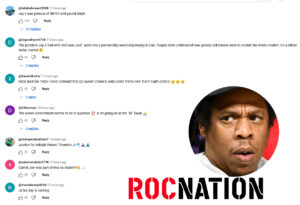In a landmark moment for her career and for artists everywhere, Taylor Swift has successfully bought back the rights to her first six albums, reclaiming her creative legacy. Announcing the news on her official website, Swift expressed her overwhelming joy: “All of the music I’ve ever made now belongs to me… I’ve been bursting into tears of joy.”
This battle for ownership traces back to June 2019, when music manager Scooter Braun acquired her former record label Big Machine and thus gained control over Swift's earlier works, including her groundbreaking albums like *Taylor Swift*, *Fearless*, and *1989*. Swift's objections stemmed not only from her desire to own her music but also from her personal animosity towards Braun, whom she accused of enabling the bullying she faced from Kanye West, one of his clients.
Reflecting on this tumultuous journey, Swift noted that regaining ownership had often seemed like an unattainable dream: “To say this is my greatest dream come true is actually being pretty reserved about it.” She expressed gratitude to her fans for their unwavering support throughout the ordeal, which took nearly two decades to resolve.
Understanding the significance of owning master recordings—essentially the original versions of her songs—Swift has vowed to hold onto her creations. The implications are considerable; owning masters gives an artist control over the distribution and licensing of their music, allowing them to navigate the waves of the ever-evolving music industry more freely.
In response to the initial loss of her masters, Swift started re-recording her albums, a project she calls "Taylor's Versions." To date, she has successfully released several re-recorded albums enriched with bonus material. But she has faced challenges, particularly regarding the re-recording of the album *Reputation*, a reflection of a tumultuous period in her life. In her latest update, Swift revealed that while she has made progress, the project may face delays.
Despite the setbacks, she reassured fans that unreleased tracks from *Reputation* would eventually debut, stating that any future releases would celebrate past work rather than dwell in sadness. Swift also reaffirmed her dedication to the music industry, emphasizing her continued commitment to ensuring that her art is used in ways that align with her values.
To further contextualize, the ownership of master recordings has profound implications in the music industry. Historically, record labels often retain this ownership as a standard practice, especially for emerging artists. Swift’s early contract with Big Machine established that the label would own her music indefinitely— a common stipulation preceding the digital age and streaming services.
The dynamics shifted further when Braun sold his stake to Shamrock Holdings in late 2020, without Swift's knowledge. This sale intensified her desire to regain control, leading up to her recent triumph. The specifics of the acquisition cost remain unclear, but estimates range dramatically. Swift's climb to ownership of her catalog reflects a broader industry conversation about artists’ rights to control their work.
Swift's journey is not only about personal triumph but has also sparked a ripple of change among fellow artists. As more musicians advocate for their rights to own master recordings, Swift’s story serves as a beacon of hope. Celebrating her victory, she expressed appreciation for her supporters, recognizing that their curiosity and activism played a vital role in her success.
This pivotal moment for Swift reinforces the importance of artist empowerment in the ever-evolving landscape of the music industry. With this victory, she not only reclaims her work but also ignites a movement that encourages emerging artists to negotiate their rights from the beginning. As the music landscape continues to change, Swift's success reaffirms the critical nature of ownership and control in the lives of artists.




















